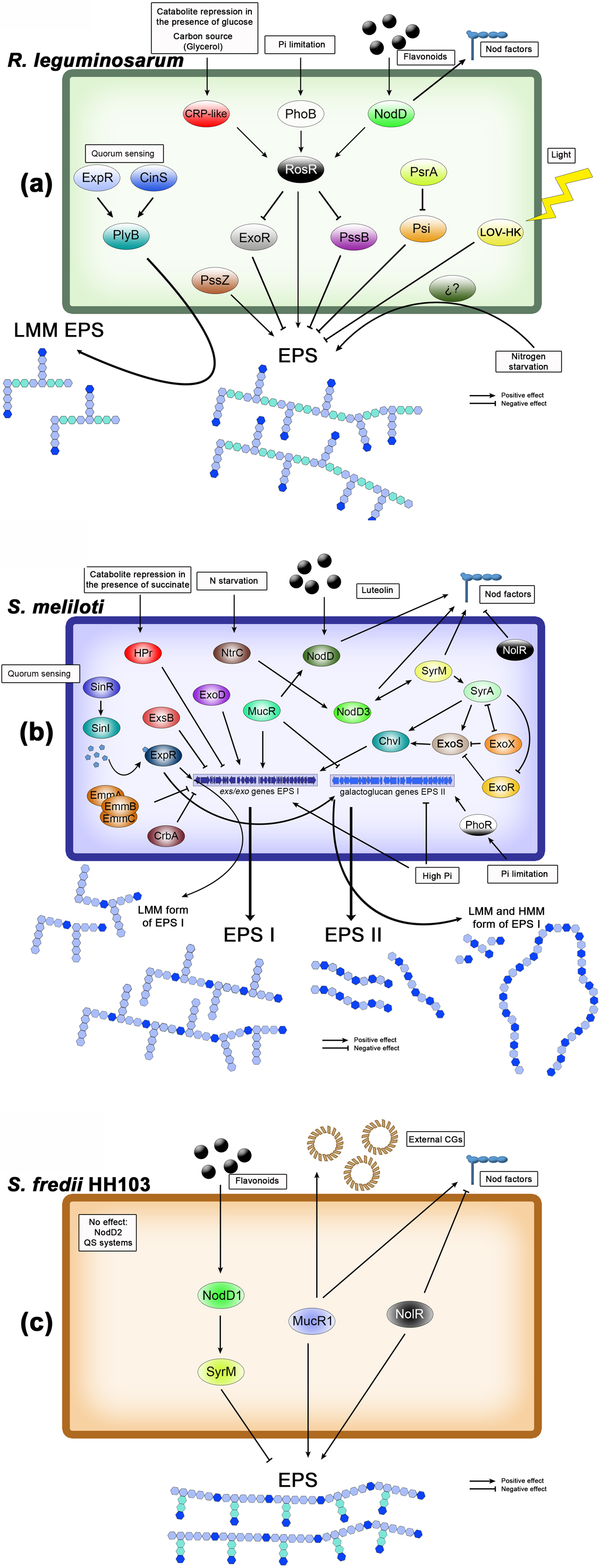Abstract: Rhizobia are soil proteobacteria able to engage in a nitrogen-fixing symbiotic interaction with legumes which involves root rhizobial infection and bacterial invasion of new organs formed by the plant in response to the presence of appropriate bacterial partners. This interaction relies on a complex molecular dialogue between both symbionts. Bacterial N-acetyl-glucosamine oligomers called Nod factors are indispensable in most cases for early steps of the symbiotic interaction. In addition, different rhizobial surface polysaccharides, such as exopolysaccharides (EPS), may also be symbiotically relevant. EPS are acidic polysaccharides located out of the cell with little or no cell association that carry out important roles both in free-life and in symbiosis. EPS production is very complexly modulated and, frequently, co-regulated with that of Nod factors, but the type of co-regulation varies depending on the rhizobial strain. Many studies point out a signalling role of EPS-derived oligosaccharides in root infection and nodule invasion but, in certain symbiotic couples, EPS can be dispensable for a successful interaction. In summary, the complex regulation of the production of rhizobial EPS varies in different rhizobia and the relevance of this polysaccharide in symbiosis with legumes depends on the specific interacting couple.

